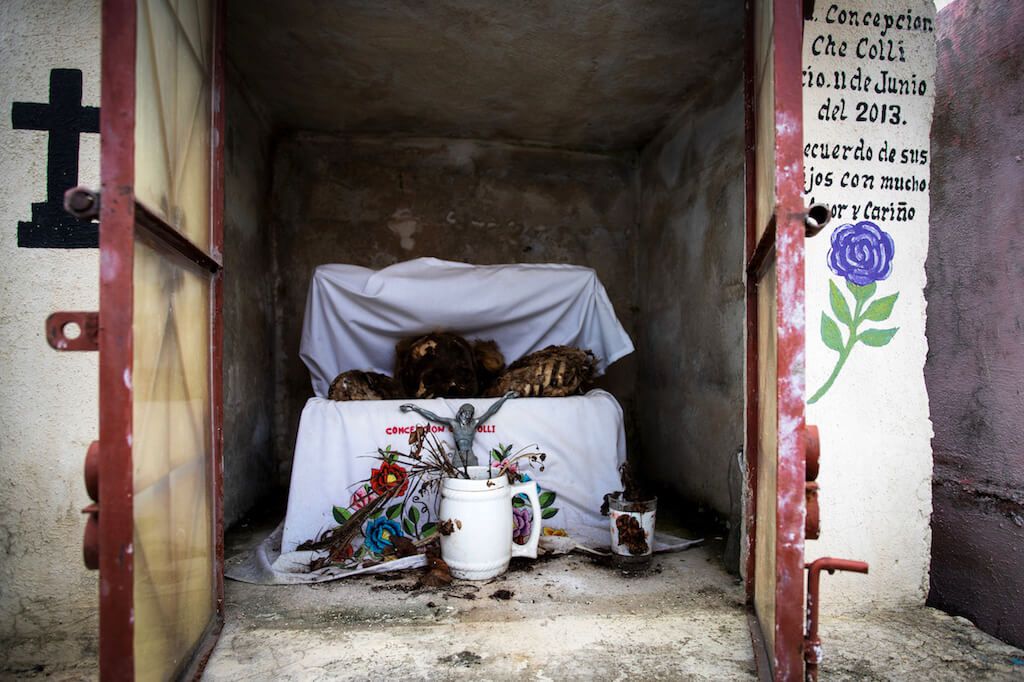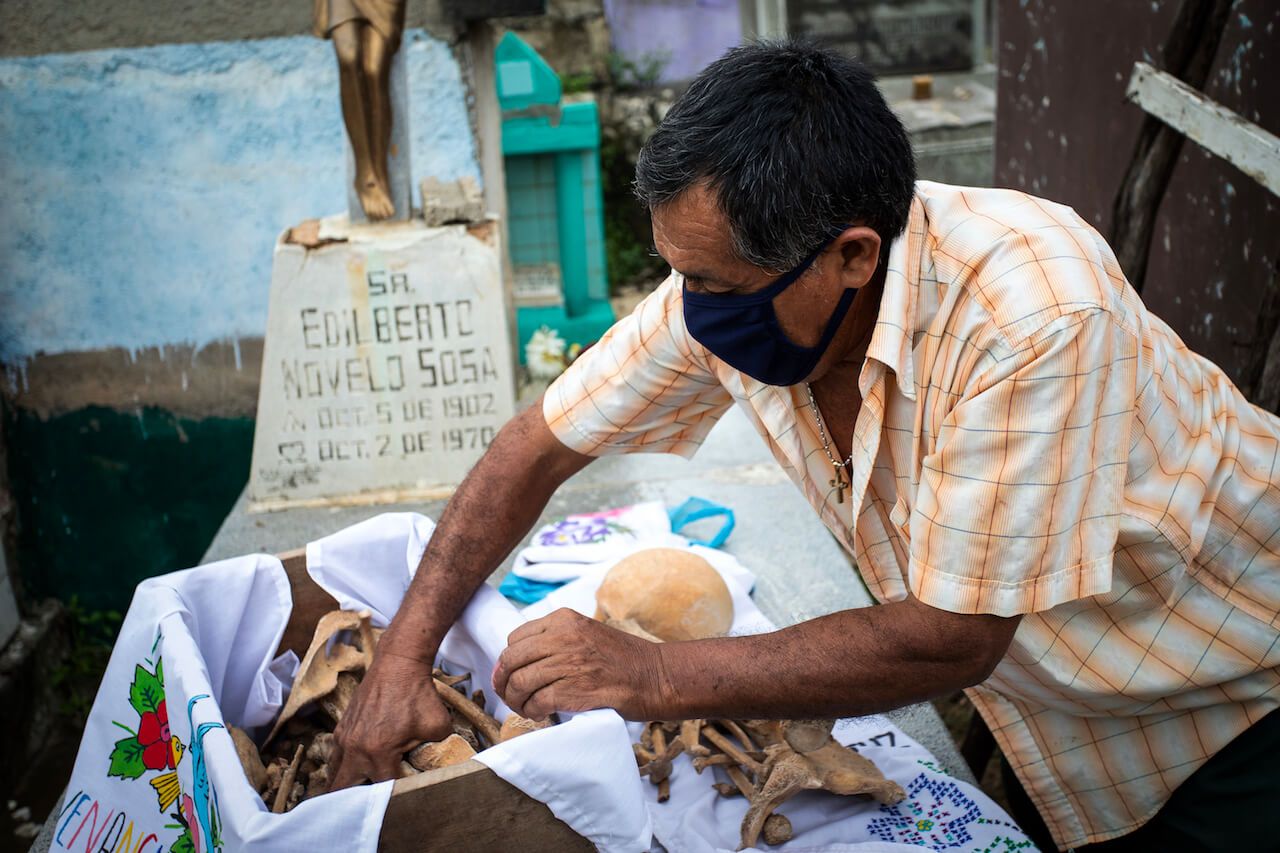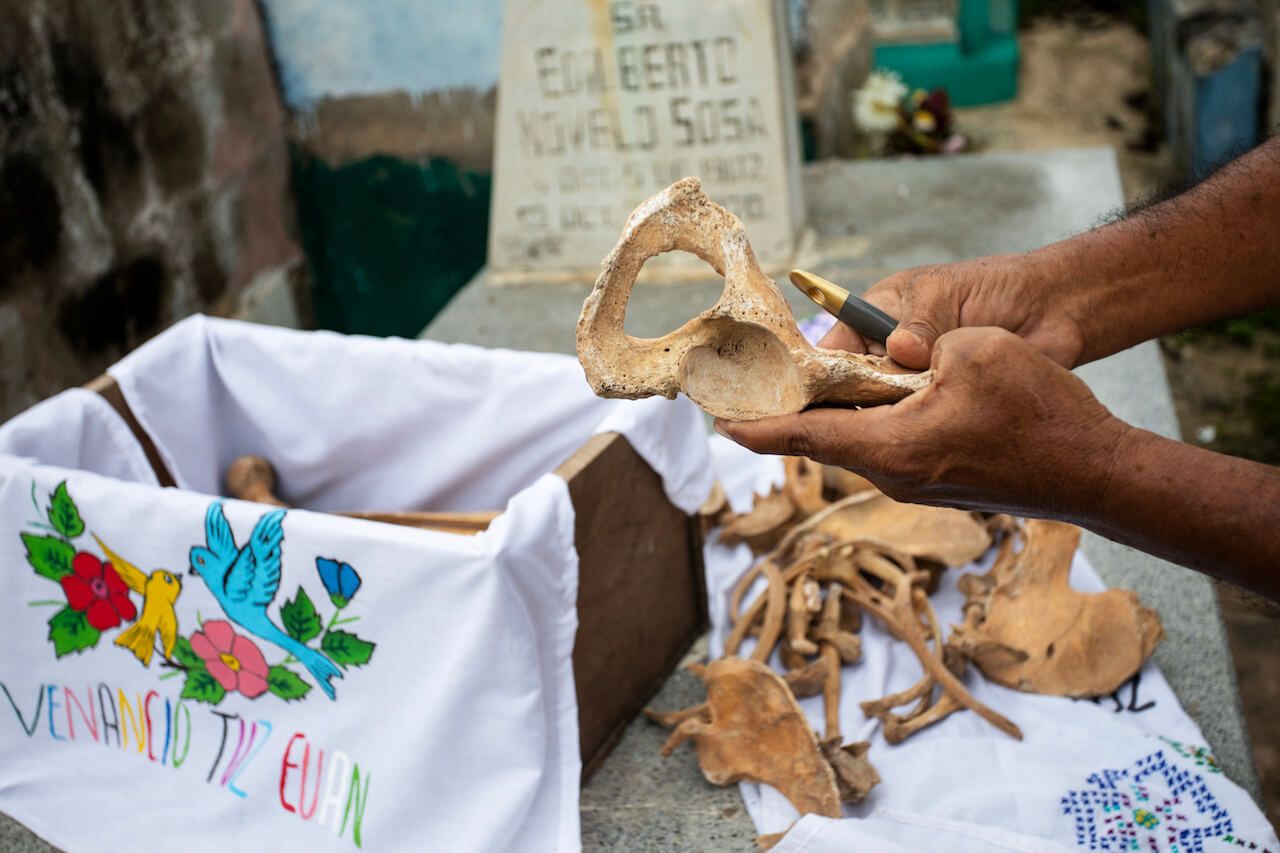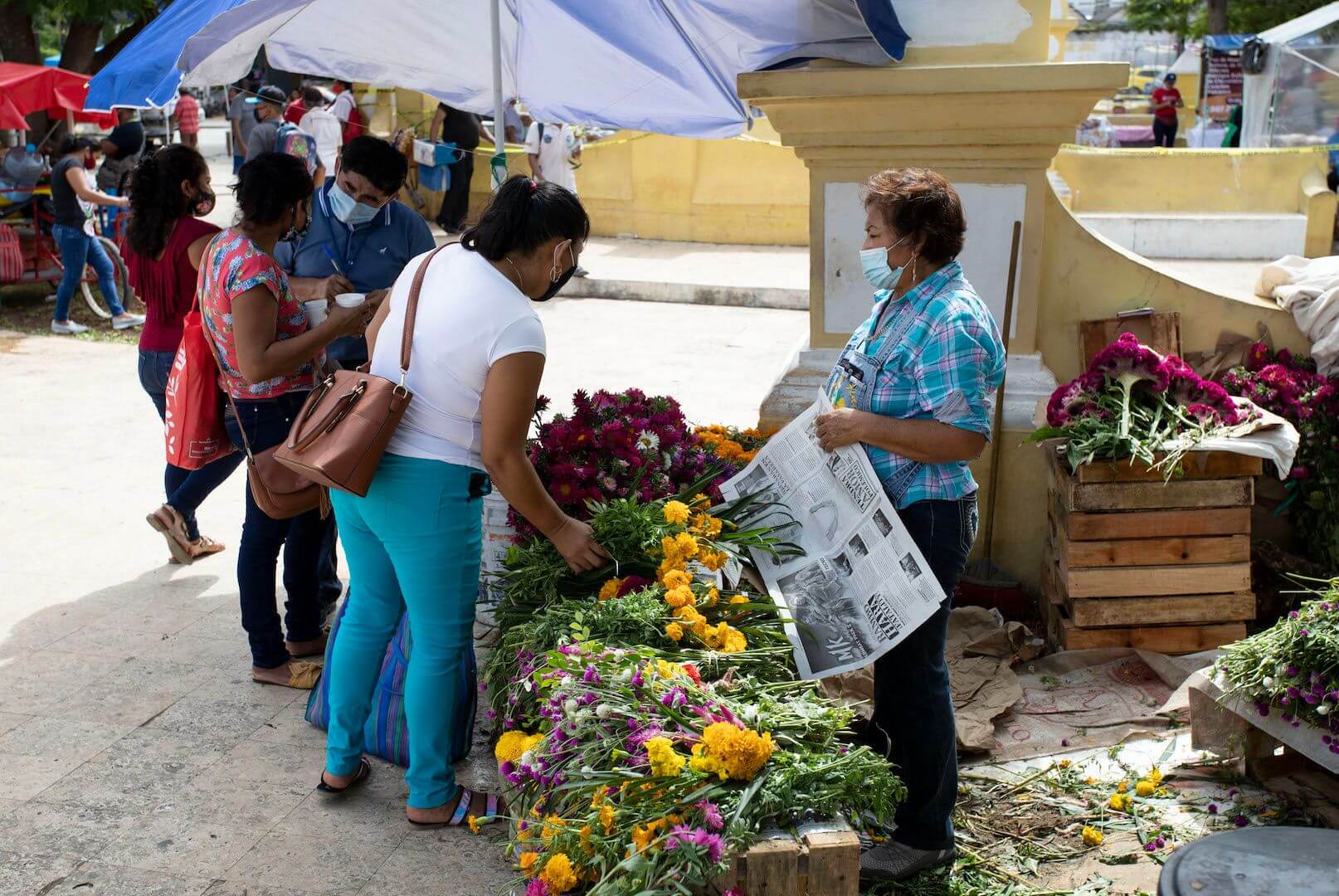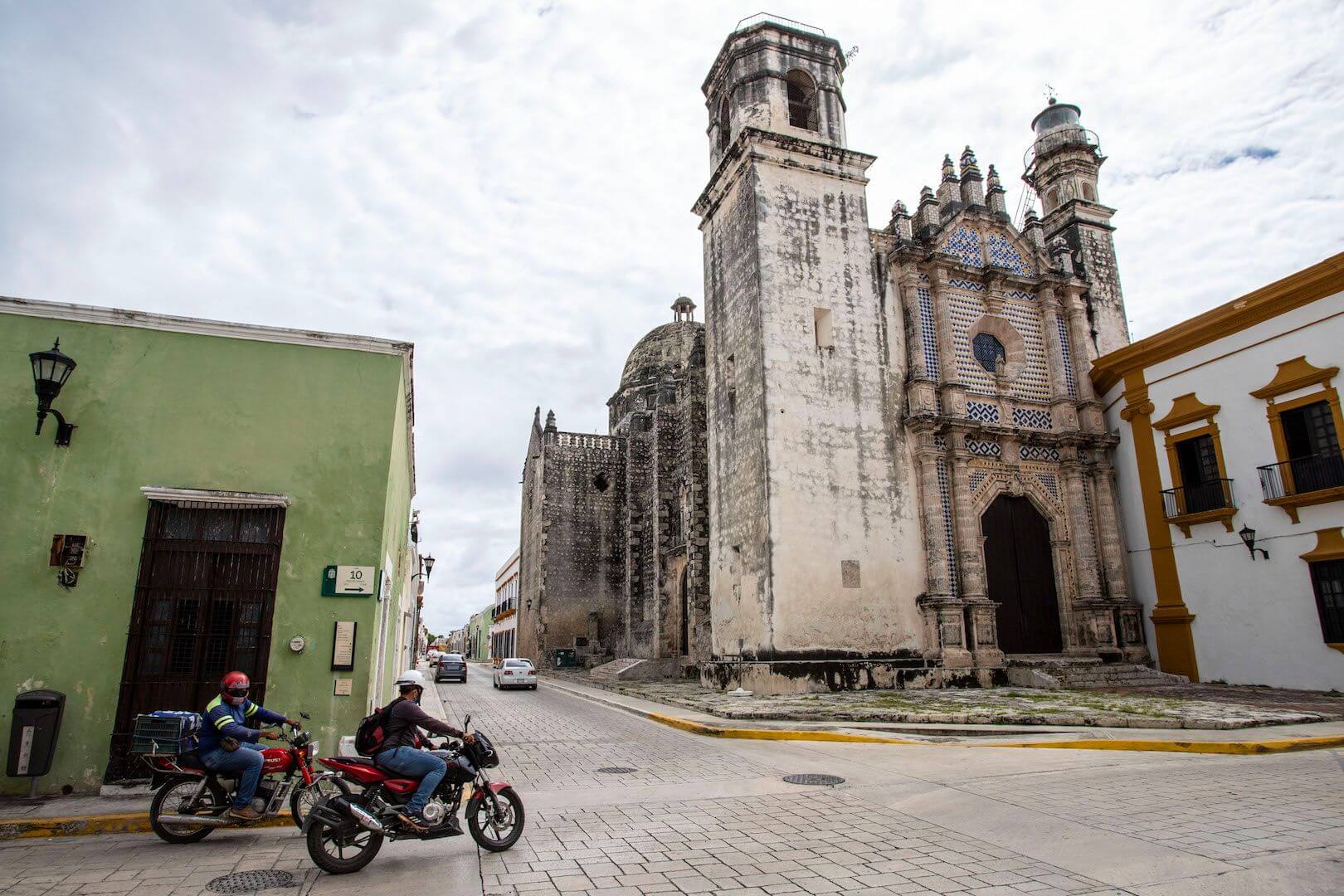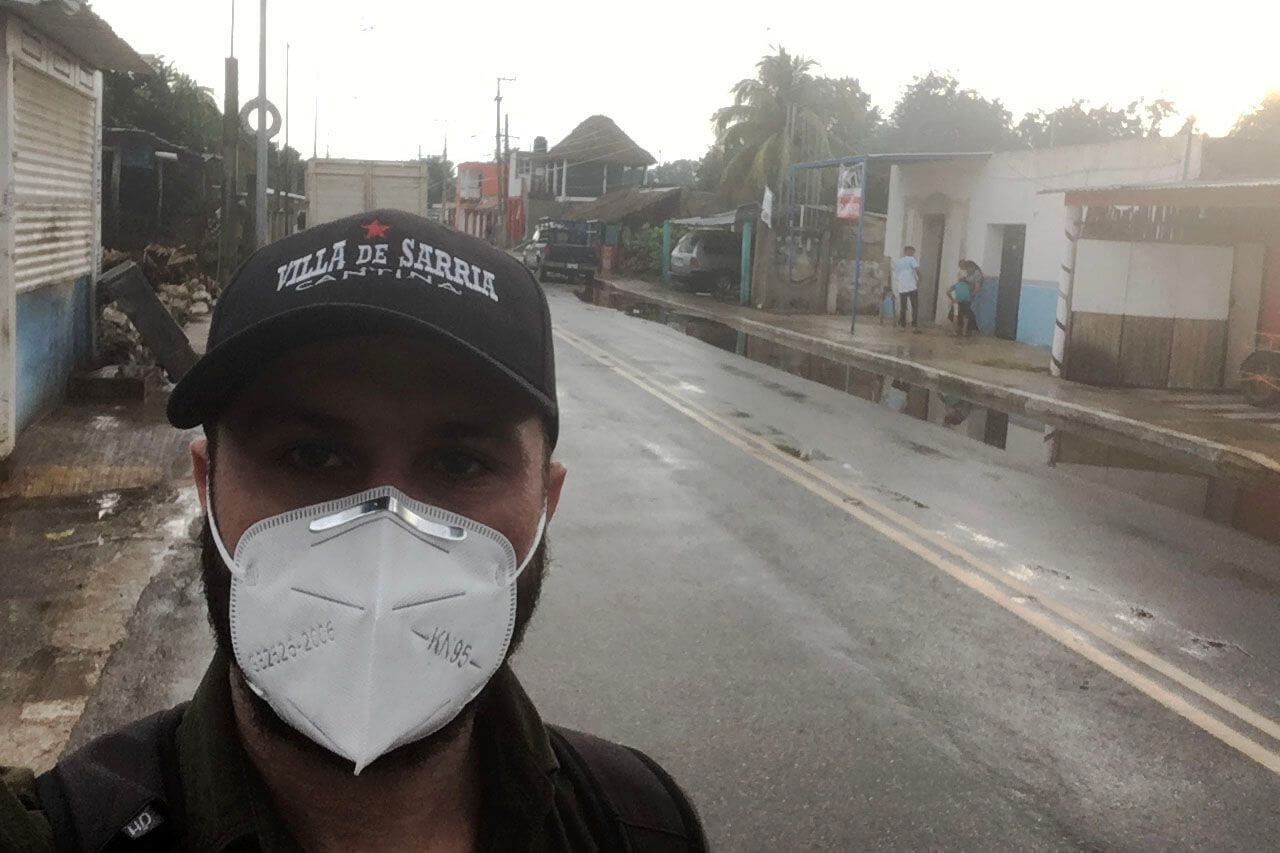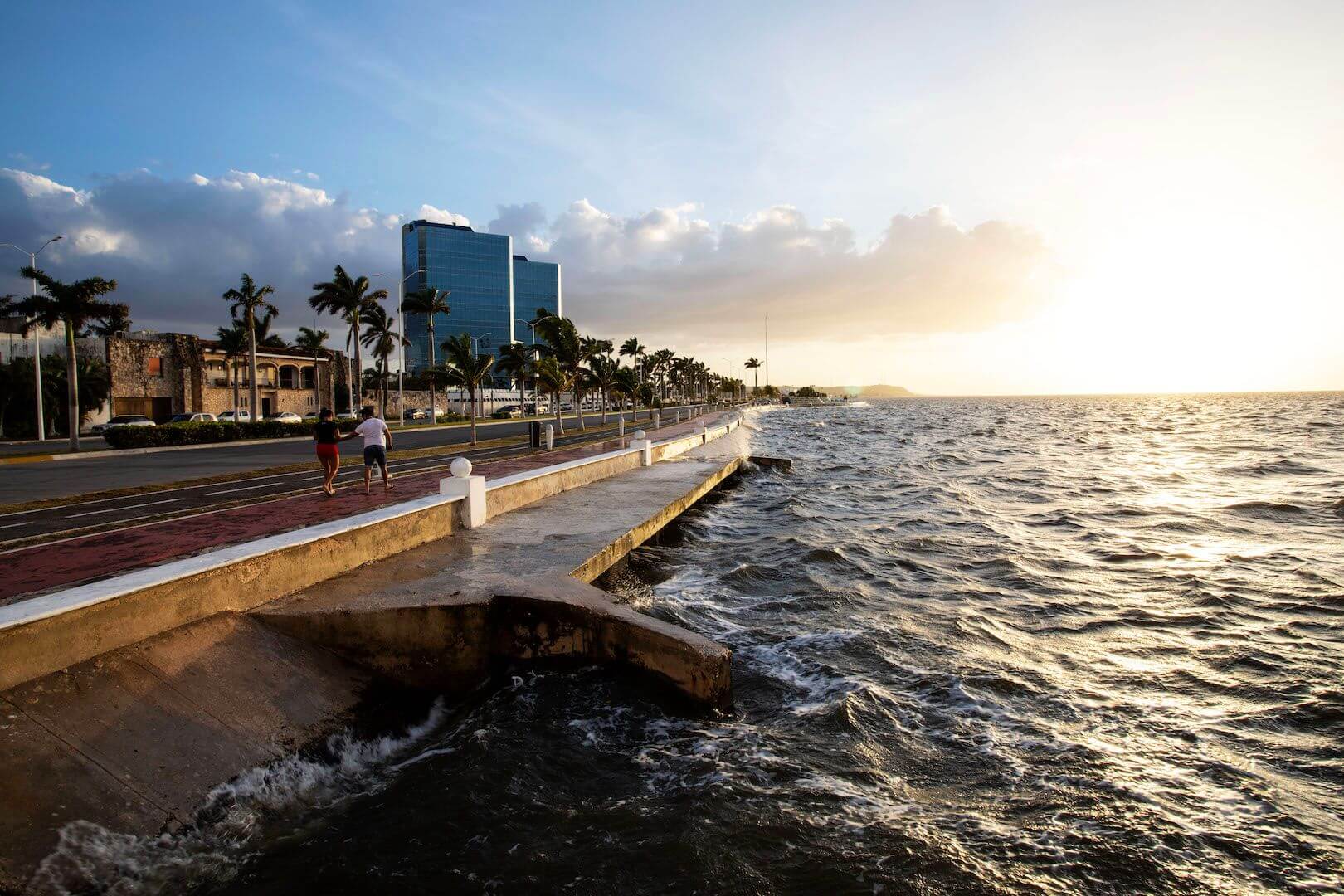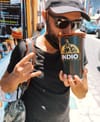Reportage: The most bizarre Halloween tradition? Cleaning and displaying bones of beloved ones in Pomuch, Yucatán
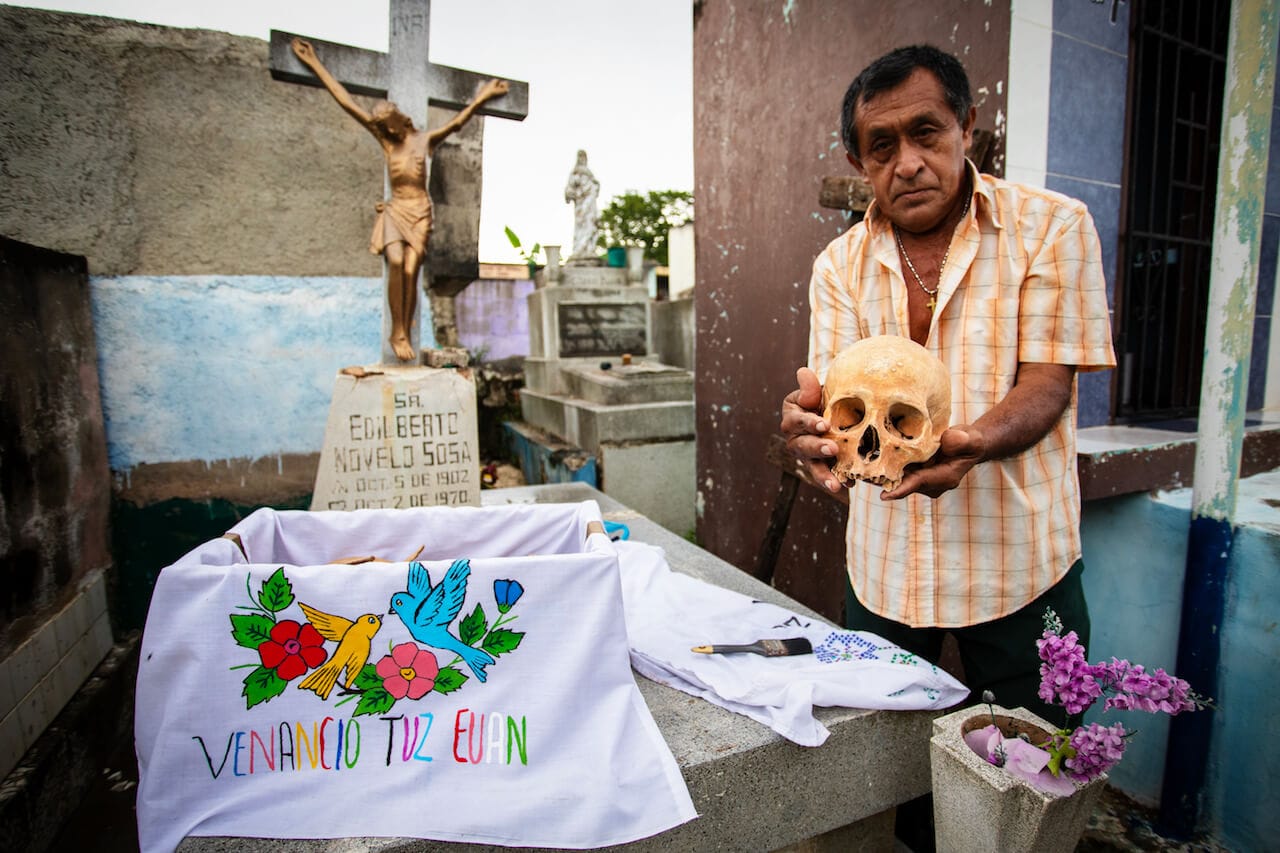
I arrived in Pomuch, or rather the town of Campeche in the state of the same name in the Mexican Yucatán, accompanied by tropical storm Zeta, which messed with us already during the flight and which was shortly afterward upgraded to a hurricane.
I had been longing to visit this place for some time and see first-hand the local tradition in which the surviving Mayan descendants clean and display the remains of their loved ones on the Feast of the Dead. I just picked the worst possible time to do it, the year 2020.
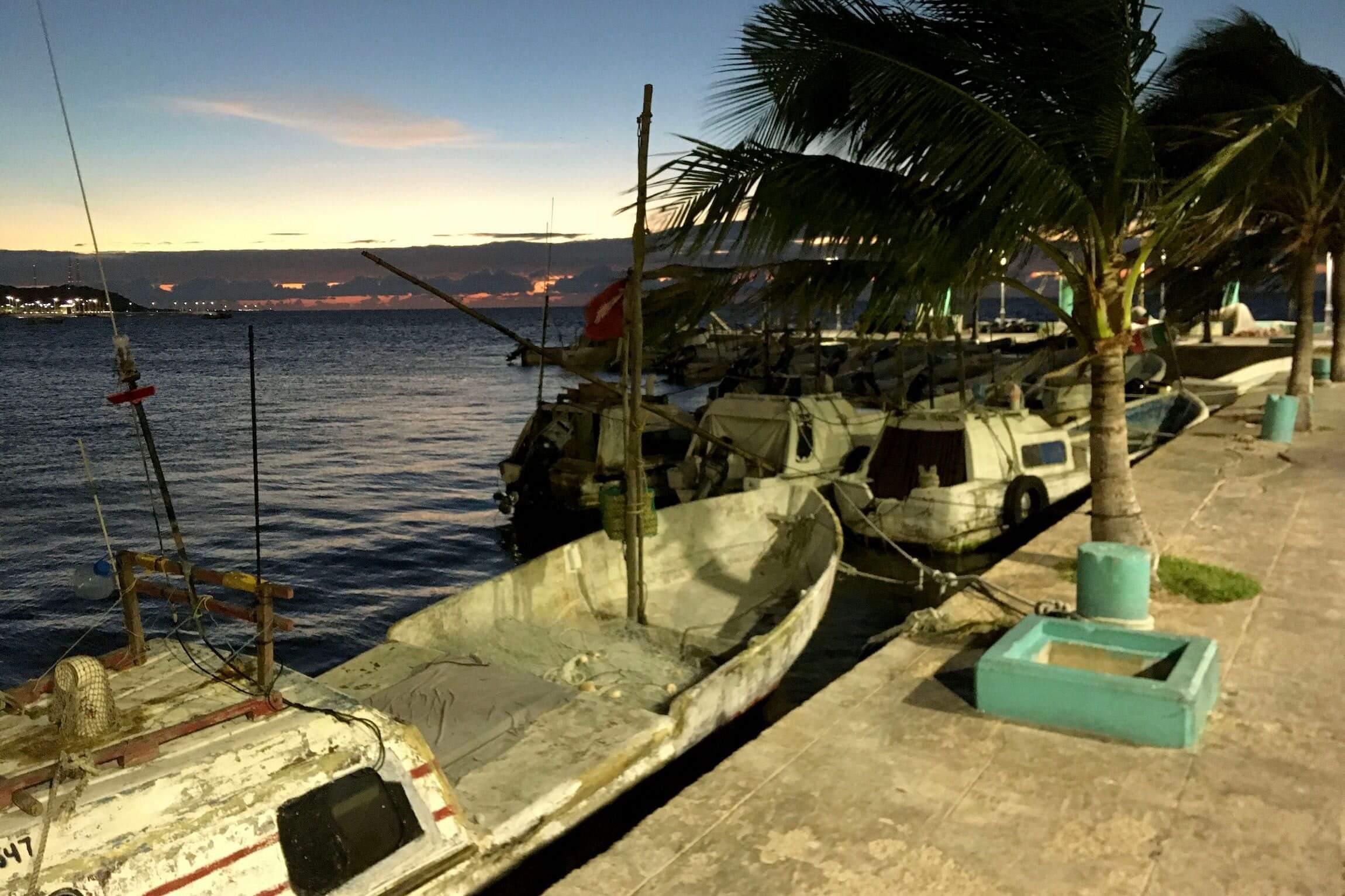
Just as you normally can't count on anything in Mexico, it was no different in this case, especially given the circumstances imposed by the pandemic. It was impossible to know in advance how open to the public would the town of Pomuch be under the weight of the covid scythe, or whether they would allow outsiders to ogle their cemetery and the exposed remains of the dead. I was therefore prepared that an excursion to the burial ground would cost me some money and I also learned the story about how a journalist from Europe had come all the way to this godforsaken corner to do a reportage for the eager readers from the Czech Republic or even Czechoslovakia.
On the very first morning, it was five days before Dia de Muertos, I braved a sharp wind off the ocean through a colorful colonial town that remembered the era of Caribbean pirates to the tourist office, where a helpful young man advised me how to get to Pomuch, about three-quarters of an hour away by minibus. He also told me that the storm was getting stronger and to hurry. I must leave tomorrow at the latest, but better still today. I packed up my camera, changed into my khaki US Navy reporter's shirt, and set off in search of a bus.
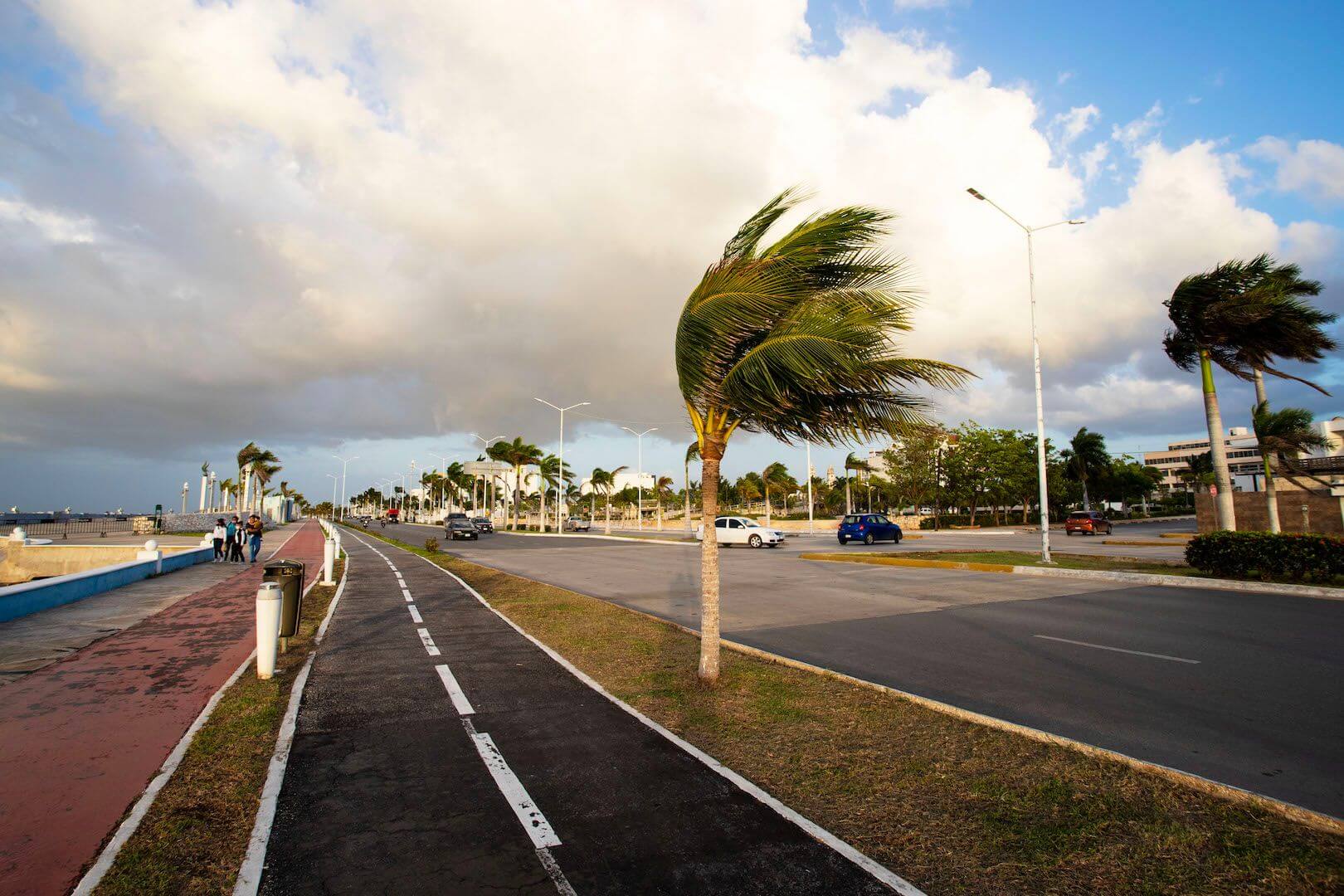
Indeed, we were in Pomuch in less than an hour. The minibus pulled up near the cemetery, and my first challenge loomed before me - there was no one I could bribe to let me into the cemetery. It even seemed to be open and accessible to the public, and that scared me even more than the idea of having to bargain with someone for admission. I didn't want to rudely barge into such a sacred place in this village like a stranger on a road trip with my camera. So I circled around, under the watchful eye of a few inquisitive eyes, wondering how to sneak in without robbing the sacred atmosphere.
On the pretext of getting a Coke, I got into a conversation with two women chatting at a nearby tortilleria. I complimented them on the town and the cemetery and ventured to ask if a stranger could sneak in and see what their famous Halloween tradition was all about. Not only did they not object, on the contrary, but they also smiled and encouraged me to go take a look. So I did.
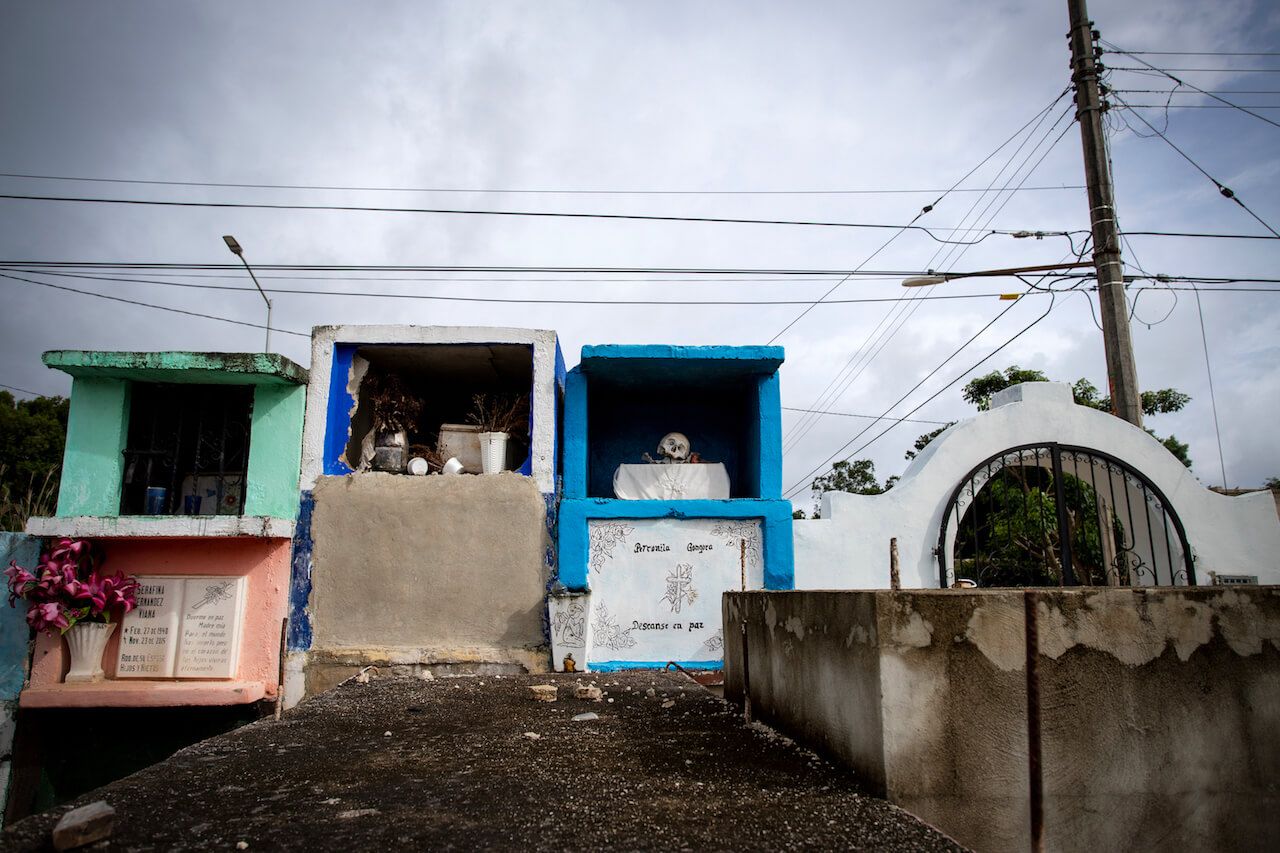
The rendezvous with the dead came quickly. The iron gate hadn't even slammed behind me yet and already a once-head, now a skull with a tuft of red hair on the top was peeking at me from under the open lid of a casket placed in a concrete niche of the tomb. I gave her a brief glance with a silent greeting and moved on. I came upon another casket and a similar scene, but this time it was a pile of whitish bones without any remnants of earthly life. Elsewhere two skulls huddled together again like relics of former lovers. Sometimes the skulls stood solitary, even lonely, sometimes displayed in splendid boxes of stained wood, sometimes peering rather involuntarily out of decaying brown cases of various sizes.
They were not meant to be frightening; they were an expression of that supreme love that goes beyond the grave, and for which our people, driven by dogmatic fear of death, have a kind of disdain. In this place, for all its apparent ugliness, there was a sense of comfort, reconciliation, and respect. Although the chilling breath of the other world was also felt in that place, which was not just because the sky had clouded over and the expected wind had blown in.
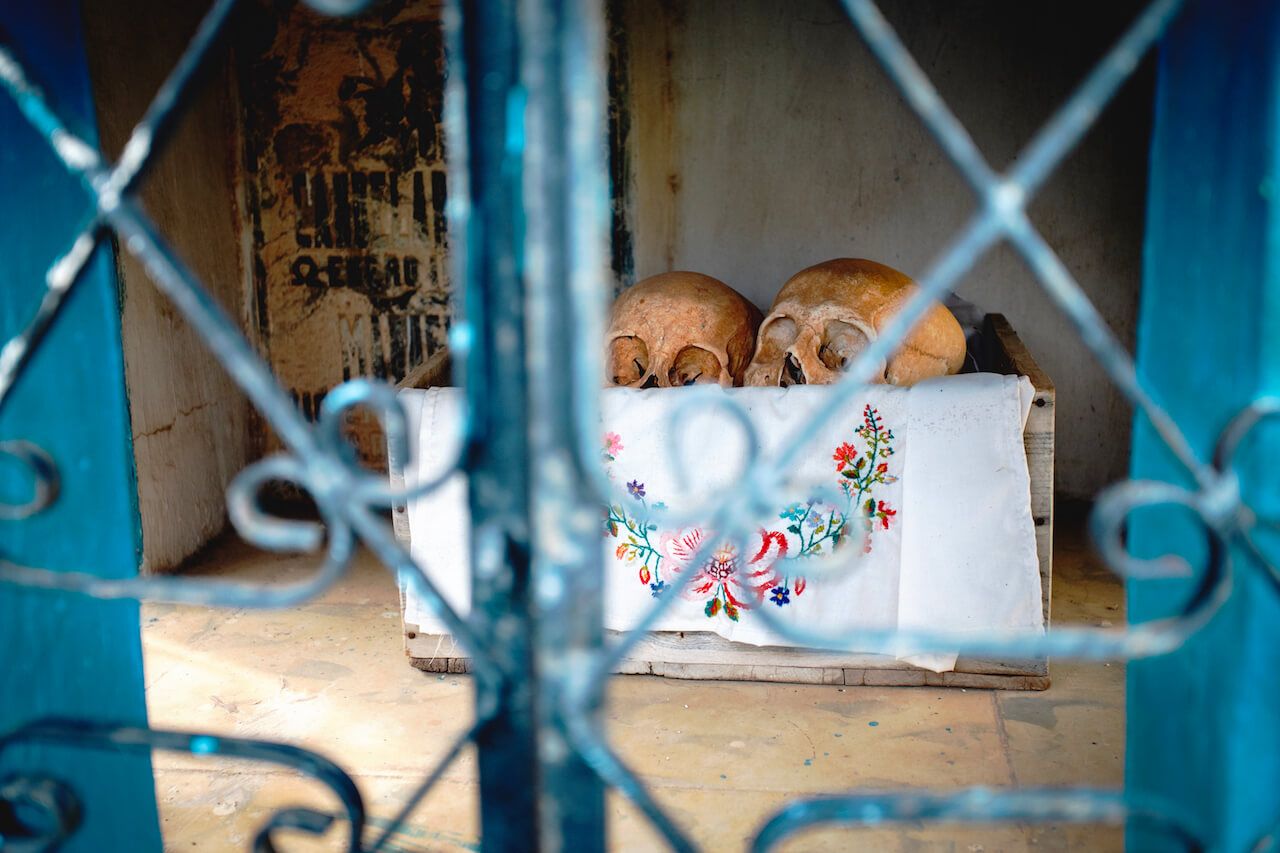
I walked in the poor and waterlogged aisles between the tombs, trying to take photos that captured the atmosphere of the place but were not too intimate and did not go into cheap creepy detail. Until the rain came, which was soon.
It started to drizzle, the palm trees behind the walls of the cemetery were bending into ever greater arcs and I recognized that it was time to get out of there. I had already taken as many pictures as I could anyway.
But somewhere inside, an editor echoed, telling me that this couldn't be it, I got just the ending of the story, and if I couldn't find a beginning and a middle to it, then I was here for nothing.
So I walked out of the cemetery to the shop where the tortilleria women had sent me earlier to get a Coke. I was parched, my shirt sweaty from the tropical heat. I bought an iced drink and started talking to the shop owner. He gave me an uninteresting and curt answer, but then my pushy attitude paid off. He told me that there was Don Venancio living not far from here, who used to be a gravedigger in the cemetery, and he knew all about the tradition of removing and cleaning bones, and he liked to talk about it.

As soon as I got back on the street, the drizzle turned into a perfect storm of massive drops. I had just time to run under the roof of the tortilleria, where several other people had sought shelter, before the shower intensified into a proper tropical downpour, a complete cloudburst, such as can only be experienced at these latitudes, so that even on the road, which curved into a U in front of our shelter and was flanked on the sides by a high sidewalk, the water rose in a moment to a height of half a meter.
Some of the people trapped under the canopy were picked up by their friends with a covered bike rickshaw, so it was just me and a petite young Mexican woman with her bike. When the rain eased to a passable level, I asked her if the Don Venancio story was true. She nodded and drew a few curves in the air. I repeated them inquiringly over and over until she finally offered to take me to him.
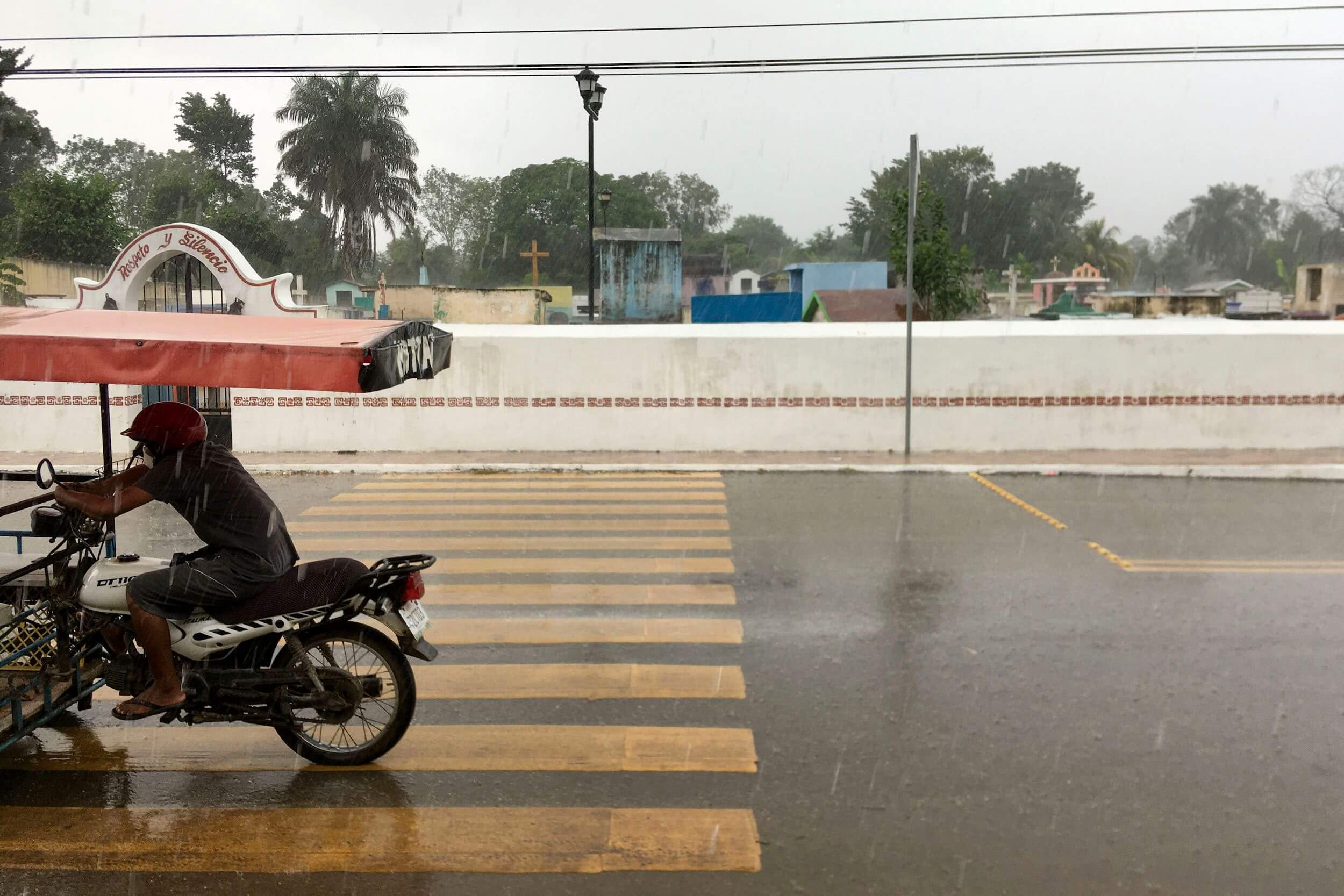
We hopped down into the flooded road. With the grace of a falling leaf, she sliced through the puddle in front of us without the sound of sloshing water, her purse and basket full of groceries in her hands, while I led her pink baby bike behind her, trying to get as little wet as possible. "Can you ride a bike?" She eyed me incredulously. Oh sure, I said. "Then get on!" She urged me.
I needed to crouch down and straddle the small vehicle so I wouldn't have the pedals at my chin. When I'd managed to do so, I found that the girl had settled in behind me. I had no idea where she fitted, but she sat as orderly as if she were in a theatre, her folded legs dangling to one side, and when she motioned for me to get on, I had a hard time not tipping us off before we even got going. I was pedaling with my knees to my nose, my camera swinging around my neck, and a cute Mexican woman behind me, giving me directions in the strangest possible tone without a hint of coquettishness.
At certain passages, the water reached so high that we had to jump off the bike and wade ankle-deep in water. To be precise, my guide, in particular, was wading, as she was wearing only flip-flops, while I, not wanting to endanger the passengers in the minibus with the fumes from my soaked shoes on the way back, was crossing it on her bike. It must have been a breathtaking sight to see a foreign dork trying to escape the wet traps on a child's bike, with a lady's purse around my neck, while a trained local lady danced with the icy cold to meet the flood, clutching my giant Canon in her hands.

However, we actually made it to a pair of houses, one of which was to belong to my next guide. The current one waved goodbye to me, as gracelessly and briskly as our previous communication had been, and was gone. I whistled at one of the houses and saw the figure, which, until now, had been resting in a hammock behind a beaded curtain in place of the front door. Now it rose and drifted out.
Don Venancio, only in his shorts, looked up at the sky, shook his head, and stated that he could do nothing for me, for it was going to rain. Drenched and sweaty, I gave him the questioning look of an impoverished dog. It didn't help much. Until it came down to the question of how much I was willing to pay him for the tour as if it could blow away the clouds and change the gloomy weather forecast for the coming sunny day. "I'll put something on and meet you at the cemetery," stated the man who with a few bills in his hand was no longer afraid of the rain. A few moments later, he raced to the cemetery gate on his bicytaxi, which he used to make extra money when he wasn't cremating or cleaning the bones of his deceased neighbors for money.
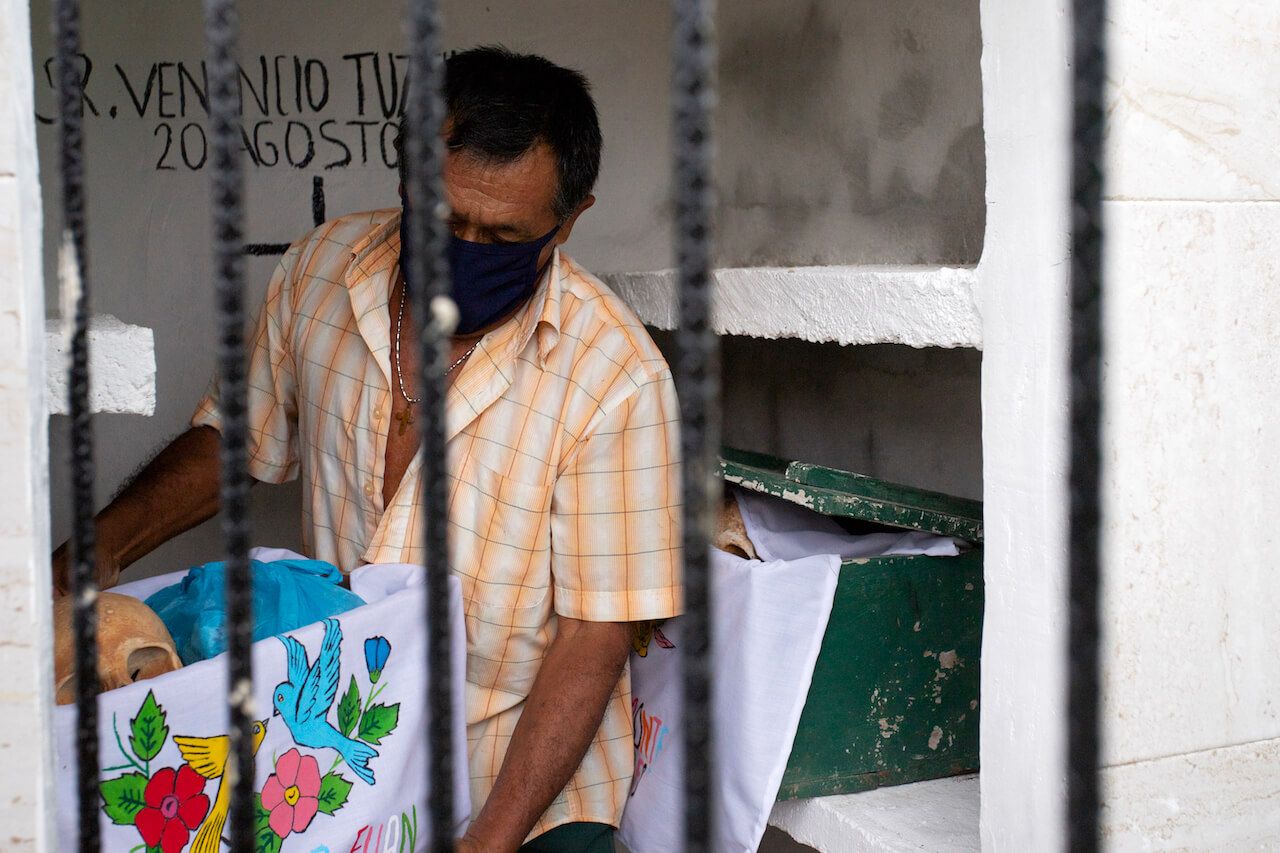
So I found myself once again behind the cemetery walls. I followed Don Venancio, who headed for one of the niches, unlocked its bars, and brought out a chest, which he placed on the driest of the surrounding tombs. On the neighboring grave, he spread a decorative tablecloth and emptied the contents of the chest on it. One by one he took the bones in his hands as if they were parts of some machine laid to rest long ago, which he was now putting back together again. He dusted them with a painter's brush without mercy, telling me as he did so of the importance of maintaining this ancient tradition he had inherited from his father years before.
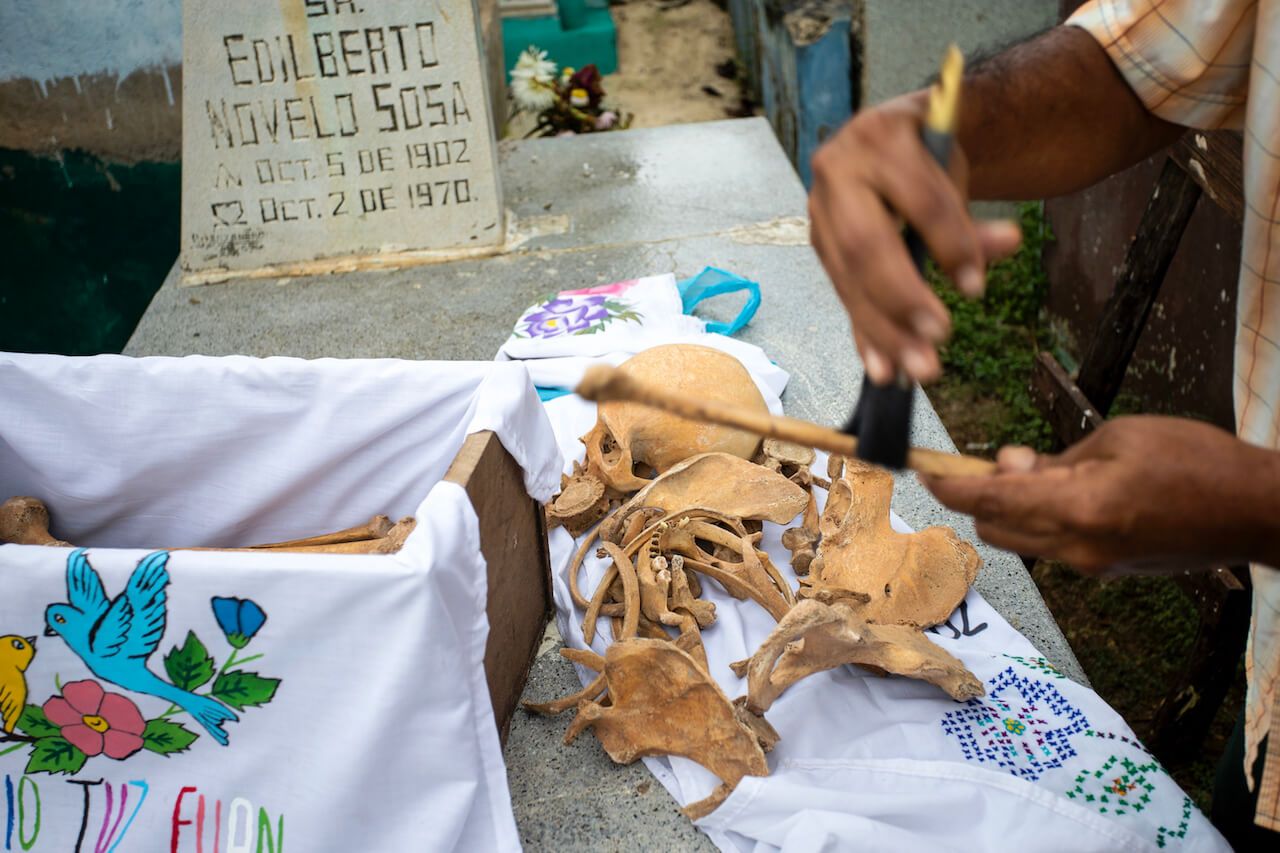
In Pomuch, according to this custom, the body of the deceased is first placed in a concrete tomb, and only three years after death are the remains removed, cleaned, and placed in wooden boxes in decorated shrines and tombs. The relatives themselves, or Don Venancio, then cleanse them before Dia de Muertos. There are said to be only two people in the village who do this for a living, and my guide was one of them.
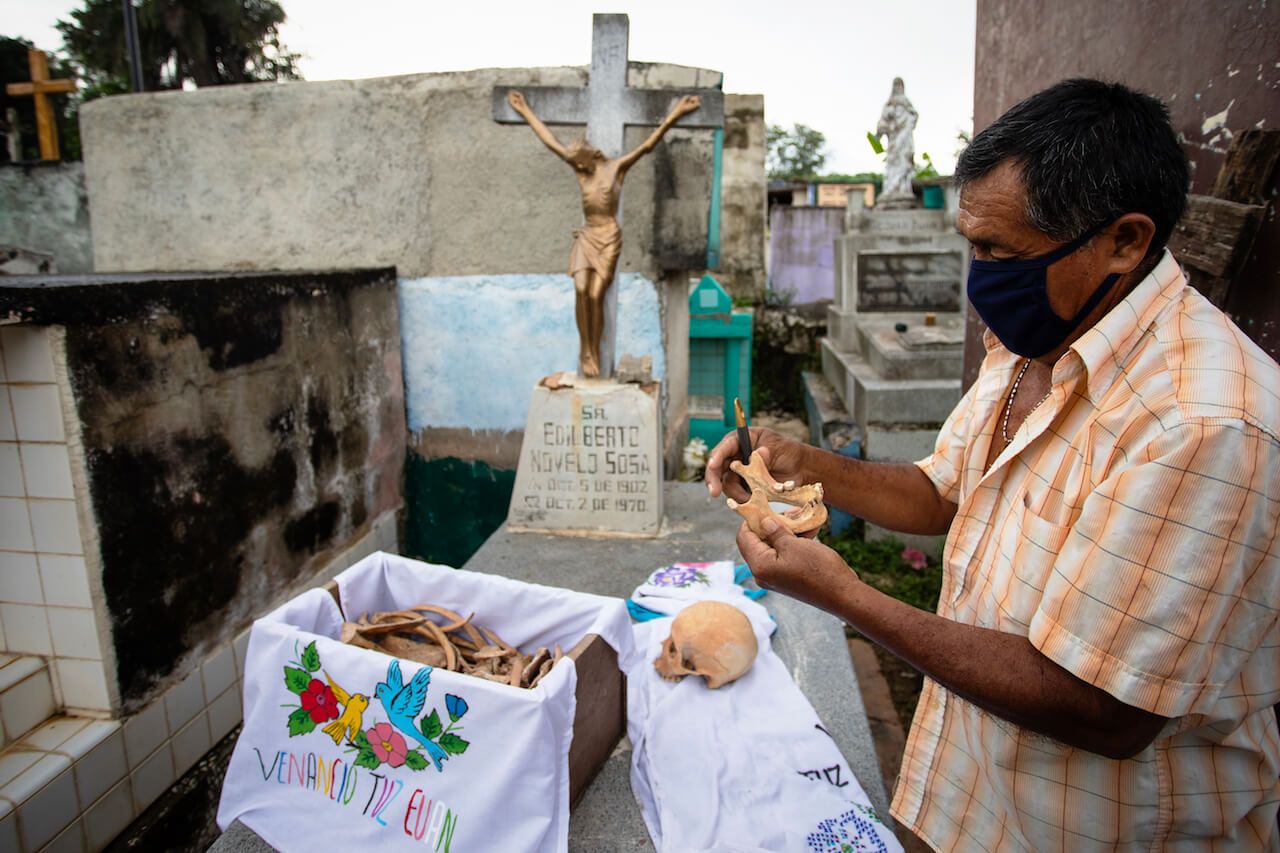
As for me, I returned to Campeche that day, soaked and tired, with damaged shoes, which I exchanged for surfer-themed flip-flops in the market near the minibus stand, and never took them off for the rest of my stay, as the rain did not stop for the whole following week, and even if it did, there was not much to do, as all the beaches, Mayan ruins or other places of interest were closed because of the covid. However, Hurricane Zeta, along with the pandemic, meant that I was probably the only foreign journalist in Pomuch that year, and that's appreciated. So maybe the timing wasn't so bad.
Thank you, folks, for reading. I hope you enjoyed. If you want to contribute so I can keep delivering this kind of content, you can do it so by buying me a beer here. I also appreciate if you can share this story in your social media.
